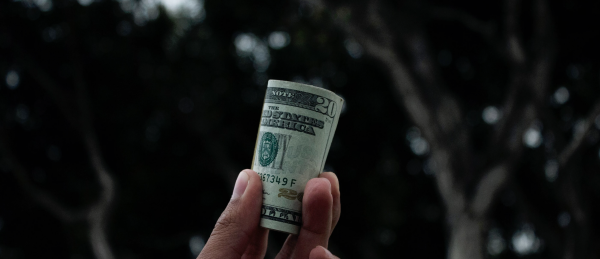Niche publishers don’t need to fear domain extortion in the wake of brand domain availability

There’s a lot of evidence to show that the more constrained we are, the more creative we become. For example, Columbia University psychologist Patricia Stokes conducted a test on rodents, with a set who could only press a bar with their right paws. Those rodents with the constraint ended up finding many more ways to press the bar than those who were able to press it however they wanted to. In the book Stretch, author Scott Soneshein writes, “When people face scarcity, they give themselves freedom to use resources in less conventional ways—because they have to. The situation demands a mental license that would otherwise remain untapped.”
Let’s bring this mental clarity to the subject of picking domain names. For some time, businesses were constrained mostly to a world of .com domains. Sure, there was .net, and .biz, but no self-respecting business would buy a .biz unless it was redirecting to their .com domain. And there was .org, but it felt reserved for non-profits, even though there is no law stopping a business from buying a .org domain. Generally, the rule was to find one you could own with all three extensions so there would be no confusion. These are called TLDs, or Top Level Domains.
Fast forward to today, where Generic Top Level Domains (gTLDs) are abundant. Software companies everywhere have adopted the .io extension like close.io (sales closing software) and single-screen game-makers practically own the space, with splix.io and slither.io. You can find out what’s out there by looking at ICANN’s list of new gTLDs.

Does Google give preference to .com domains vs. gTLDs?
Matt Cutts says that they do not rank sites differently based on their domains, whether a site is a .com or a .io or even a .science or anything else. Although I can count on two hands how many times I’ve seen sites with a gTLD show up in search results, it may just be because most publishers who publish the most content on the web happen to live on standard .com domains.
And what about .brand domains for niche publishers?
You may have heard some buzz recently about buying your brand name. This all came about because Google did it themselves. For example, their blog URL is now blog.google. The former address was blog.google.com, but now “.google” takes the place of .com in many of their URLs.
The concept is that these URLs could be considered shorter and more user friendly. So for example, if you go to surface.microsoft, you’ll be redirected to their page about the microsoft surface.
Sources like ClickZ have been saying that Fortune 500 companies are in a mad dash to claim their brand domains, but I think it’s important for you to know if you’re a smaller publisher that this isn’t something that should cause you anxiety. Here are a few reasons:
1. You need to apply for a brand domain. Any joe schmoe can’t waltz in and buy your company name, then extort money out of you later on to buy it back because the buying process just isn’t that simple. In fact, if your name is trademarked, they’re not even allowed to buy any version of it, thanks to the 1999 Anti-Cybersquatting Consumer Protection Act which now protects businesses from tactics like this.
2. Buying a brand domain is expensive. Buying a brand domain isn’t like buying a .com. There is enormous overhead costs because it’s an expensive and lengthy process to set up. You will pay a registrar service, and an application fee of $185,000. Part of the overhead costs include getting listed in search engines and indexed on the web, since you are a brand new gTLD.
3. Maintaining a brand domain is also expensive. Renewal fees for a brand domain aren’t cheap, either. Every year, you’ll pay a annual ICANN gTLD Annual Maintenance Fee of $24,000 and likely a fee from your provider. Instra Corporation, who provides this service, has a breakdown of these fees on their website.

Should niche publishers buy up all the domains with their name in it?
The most expensive domain names ever purchased were Insurance.com ($35.6 million in 2010), VacationRentals.com ($35 million in 2007), PrivateJet.com ($30 million in 2012) and Internet.com ($18 million in 2009).
But if you have a unique trademarked name, you’re protected from the practice of domain extortion by the 1999 Anti-Cybersquatting Consumer Protection Act. Unless you have a generic name like Time or People, someone can’t go out and buy your business name for their URL, or use it to extort money from you. If you’re Reader’s Digest, nobody can go out and legally purchase MyReadersDigest.com or ReadersDigestDotCom.com or even ReedersDigest.com. In fact if they try, you can contact the registrar and ultimately you may be able to get the domain transferred to you at no cost (talk to a lawyer about all of this, of course).
Hopefully this calms any fears you might have about new domain registration. Thankfully, domain registration isn’t the Wild West anymore.


